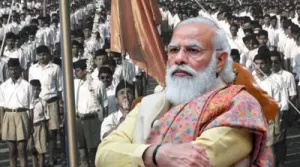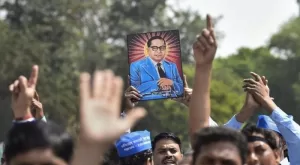The Karnataka government’s plan to launch its “Anna Bhagya” scheme on July 1 under which it was planning to provide 10 kg of free rice per month to each family below the poverty-line has run into problems because of the Food Corporation of India’s unwillingness to sell any rice to that state. Since the current central scheme provides 5 kg of free rice to each BPL family, the Karnataka scheme would have provided an additional 5 kg per month to about 1.19 crore BPL and Antyodaya card-holders. Besides, the centre has been planning for some time to wind up its scheme, which was introduced in response to the pandemic; the Karnataka proposal therefore, which was part of the newly-elected government’s election promise, was aimed to give it a permanence.
The Karnataka government is currently exploring other options for obtaining rice supplies, from other central agencies and from various state governments; but the latter do not have adequate stocks at the moment, and the former may also be prevented by the central government, as the FCI has been, from selling to the state government. Besides, buying from these sources would raise the cost of the scheme considerably, making it that much more difficult to finance it from the state budget.
This is not just a stray conflict involving the BJP government at the centre and an opposition-ruled state. It represents an incredible level of centralisation, effected with the sole purpose of thwarting a pro-people scheme of an opposition government, and that too entirely for political reasons, that is, to ensure that the government of the opposition party does not become too popular. In fact, ironically, even as the BJP government at the centre is thwarting the fulfilment of the new Karnataka government’s electoral promise, the BJP as a party within the state is vociferously demanding that the new government must fulfil all its electoral promises.
To be sure, the centre’s opposition to welfare schemes of state governments is not new. When the Congress government at the centre had reduced the scope of the public distribution system and restricted the provision of subsidised foodgrains only to the BPL-population, the LDF government of Kerala, a state that had a universal PDS till then, had sought to mobilise cheap foodgrain supplies on its own to keep its universal PDS going. For this purpose it had procured some foodgrains from within the state itself; but the FCI, even though it does not procure any grains directly from that state and even though that state is recognised as a deficit state, reduced its supplies for the PDS to that state by an exactly equivalent amount!
The phenomenon of utterly uncalled-for centralisation therefore is not new. But the BJP government has carried it to unprecedented lengths, by denying even open-market sale to a state government that is perfectly willing to pay the price. This political discrimination against a state government however is essentially a blow against the poor; they are the ones who will suffer because of the antipathy of the BJP government at the entre to the Congress government in Karnataka.
The BJP government of course pretends that the refusal to sell FCI stocks to Karnataka is not at all politically motivated. But the excuses they trot out for not selling are wholly invalid. The first states that the government does not have enough stocks. But if that were the case then it should not be planning to sell 5 lakh tonnes of rice (apart from 4 lakh tonnes of wheat) in the coming weeks as it has announced its intentions of doing. The Karnataka government in fact wanted to buy 2.46 lakh tonnes from the FCI, which therefore is planning to sell foodgrains to traders rather than to a state government.
That is where its second excuse comes in, namely that selling to traders is a means of controlling inflation. In fact the FCI chairman made this point explicitly to the media, namely that the Open Market Sales Scheme is an anti-inflationary measure which would bring down the retail inflation in foodgrain prices.
This however is a bizarre argument. If excess demand is the cause of foodgrain price inflation, and if it is to be curbed, then a far more effective way of doing so is through releasing government stocks via consumption than via trade, for in the latter case the government has no control over the end-use of the grain which might just be hoarded and hence exert no downward effect on prices. A far more effective way of controlling inflation therefore is to release grains to state governments which would use them for people’s consumption, rather than to traders who may hoard these grains.
In fact this has been a very common experience in India going back to as early as 1972. In that year when foodgrain prices started rising in anticipation of a bad harvest, the Indira Gandhi government, which had ample foodgrain stocks, resorted to open market sales to keep down prices, instead of releasing stocks through the public distribution system which would have taken consumers off the open market; the traders gleefully bought up the grains that were being sold by the government and hoarded them, because of which inflation continued as before, even as the government’s foodgrain stocks got depleted to no purpose. More than half a century later, the BJP government is once again repeating exactly the same mistake, namely releasing foodgrain stocks to traders rather than to consumers (via state governments) as a means of combating inflation.
Of course it may be argued that the Karnataka government scheme would simply increase the consumption of the BPL population, instead of taking them off the open market. In other words, the beneficiaries of the scheme would be consuming additional foodgrains which they otherwise would have had no access to, not replacing what they would otherwise have purchased on the open market by what the government would now be providing. There would therefore be no reduction in excess demand on the open market and hence no reduction in the rate of inflation.
This argument however is erroneous for two reasons: first, its assumption is wrong. There are supposed to be 4.42 crore beneficiaries from the scheme. To imagine that all of them would be just increasing their consumption and not substituting, to some degree, open market purchases by the enhanced amounts made available by the new government, appears utterly unrealistic. The Karnataka scheme therefore would mean some reduction in the demand pressure on the open market and hence some countering of inflation.
Secondly, one worries about inflation primarily because it hurts the working poor by curtailing their consumption. If this consumption is being directly augmented, then whether or not the inflation rate comes down is a matter of little consequence. Achieving inflation-control in foodgrains, even if India’s rank continues to be worse than 100 in the world hunger index, betrays wrong priorities.
Whichever way we look at the action of the BJP government, therefore, it appears inexcusable. If all the talk about inflation is just a red herring and the centre’s not selling grains to the Karnataka government is an act of sheer political discrimination, then it is inexcusable, for it amounts to playing politics at the expense of the poor. On the other hand, if the central government is really worried about not being able to control inflation if it sells rice to the Karnataka government, then it betrays a completely wrong understanding of, and attitude towards, inflation, that is also inexcusable.
Such centralisation of food administration runs the risk of generating centrifugal tendencies that would undermine the entire food economy of the country. If opposition-ruled states for instance, being discriminated in this manner, decide to by-pass the Food Corporation of India completely, then the entire nationally-administered public distribution system would become unsustainable.
While the BJP, whose understanding of, and concern for, the needs of the people is minimal, may not mind a winding down of the PDS (its government’s three farm laws that had to be withdrawn in the face of stiff kisan opposition would have indeed achieved precisely such a winding down), the country would be the loser.
(Prabhat Patnaik is Professor Emeritus at the Centre for Economic Studies and Planning, Jawaharlal Nehru University, New Delhi. Courtesy: The author’s blog at networkideas.org.)




